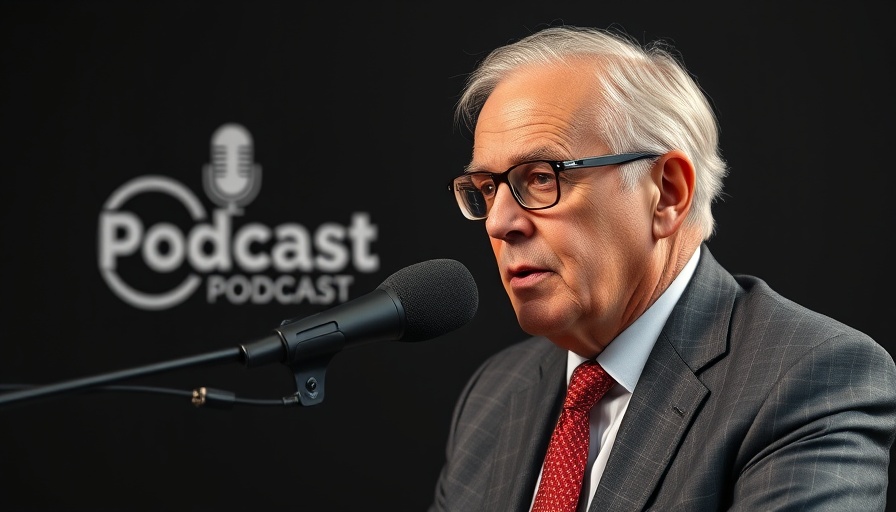
Understanding the Battle Against Vaccine Misinformation
In a world saturated with information, the need to discern fact from fiction has never been more critical—especially regarding health. The recent conversation with Dr. Peter Hotez sheds light on the ongoing issue of vaccine misinformation and its implications for public health. By examining key aspects of vaccine safety and the myths surrounding them, we can better understand the importance of accurate scientific communication.
In 'Understanding Vaccine Misinformation: A Conversation with Dr. Peter Hotez', the discussion dives into the science behind vaccines and their misconceptions, prompting us to analyze critical insights for public health.
Debunking Myths: The Facts About Vaccines and Autism
Dr. Hotez’s insights into the unfounded claims that vaccines cause autism are illuminating. He highlights that significant research has conclusively shown no link between vaccines, such as the MMR (measles, mumps, rubella) vaccine, and autism. Historical misinformation can be traced back to Andrew Wakefield’s retracted study in 1998, which has since been debunked by extensive scientific studies. Instead, Dr. Hotez points out a plausible explanation for the rise in autism diagnoses—broader criteria and better detection methods over the years. This sentiment positions vaccine misinformation as a potentially dangerous distraction from meaningful discussions about autism and its complexities.
The Importance of Public Science Education
Dr. Hotez passionately advocates for enhanced public understanding of science. He emphasizes that improving science literacy is pivotal in combating misinformation. With organized misinformation campaigns often misleading the public, there’s a significant need for transparent communication regarding vaccine safety and efficacy. By crafting infographics and debunking myths in real-time, scientists can engage with concerned parents more effectively and restore confidence in vaccination programs.
A Call for Compassion and Understanding
As healthcare professionals continue to battle misinformation, understanding and empathy for parents' concerns are key. Parents want the best for their children and often seek information that aligns with their fears. The challenge lies in clearly communicating real risks versus perceived threats. Building bridges between the scientific community and the public can pave the way for a more informed and healthier society.
 Add Row
Add Row  Add
Add 




 Add Row
Add Row  Add
Add 

Write A Comment